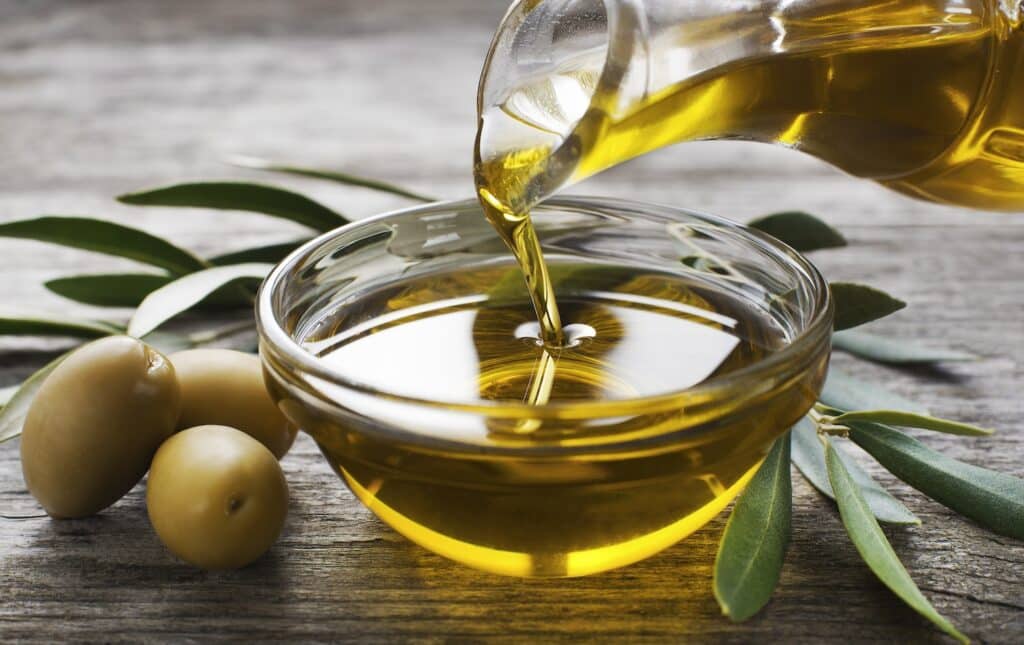Are the “vegetable oil is bad for you” claims fear-mongering or fact? We asked registered dietitian Katherine Basbaum, MS, RD, to dig into the actual science behind vegetable oils.
The post Is Vegetable Oil Bad For Your Health? appeared first on MyFitnessPal Blog.

Some oils—namely seed oils and vegetable oils—have been getting a bad rap on social media lately. Many influencers and health experts claim they can lead to inflammation and other health issues.
But are the “vegetable oil is bad for you” claims fear-mongering or fact?
We asked registered dietitian Katherine Basbaum, MS, RD, to dig into the actual science behind vegetable oils—and whether or not they’re as unhealthy as TikTok makes them out to be.
What vegetable oils are
Most vegetable oil is soybean oil with corn oil blended in to give it the “vegetable” title.
Soybean oil is primarily made up of polyunsaturated fatty acids (PUFAs). Only about 8 percent of those PUFAs are the healthy kind known as omega-3 fatty acids.
The rest are omega-6 fatty acids, which studies have shown to increase the risk of inflammatory diseases like obesity, diabetes, and cardiovascular disease when consumed in large quantities.
How vegetable oils compare to other oils
Amid the war against seed oils, plenty of purportedly healthier alternatives have popped up, like olive oil, avocado oil, and even beef tallow. But how do they stack up against vegetable oil?
“The calorie and fat content of vegetable oil is about the same as most other plant-based popular cooking oils,” Basbaum explains, going on to say, “But there is a difference when looking at the rest of its nutrient profile.”
Olive oil, for instance, is much higher in antioxidants and mono-unsaturated fatty acids (MUFAs), which research has found can improve heart health and reduce the risk of cancer. And, according to Basbaum, avocado oil has a similar nutrient profile.
As for the trendy beef tallow, Basbaum is skeptical.
“Though it is minimally processed, the fact that it is so high in saturated fats (about 50% of the total fat) is a big red flag as it has been well-established that lowering intake of saturated fat can significantly lower cardiovascular risk factors,” she cautions.
That said, if weight loss is your goal, Basbaum says there isn’t any substantial scientific research that supports one type of oil over another.
The final verdict
So, are vegetable oils bad? When it comes to sunflower, safflower, and canola oils, it seems that the dose is what matters most. If you’re using it sparingly, current research suggests it should be fine, Basbaum says.
But if you’re using it liberally, she recommends switching to olive or avocado oil, which contain less omega-6 fatty acids.
The good news is that plant-based oil can still be a part of your diet—in moderation.
“It is important to be mindful of the high-calorie content and to avoid being heavy-handed when cooking with them, regardless of which one you choose,” Basbaum explains.
FAQs
What is the difference between olive oil, sunflower oil, canola oil, and coconut oil?
Though they are all classified as plant-based oils and contain about the same amount of total fat and calories, the main differences between them are flavor, ideal cooking environments, and fatty acid profiles—aka, how much saturated, polyunsaturated (PUFA) and monounsaturated (MUFA) fats they contain.
- Olive Oil: 14.2% Saturated, 10.8% PUFA, 75% MUFA
- Sunflower Oil: 10.8% Saturated, 68.8% PUFA, 20.4% MUFA
- Canola Oil: 7.5% Saturated, 28.5% PUFA, 64% MUFA
- Coconut Oil: 92% Saturated, 1.9% PUFA, 6.2% MUFA
Are some oils better for high-heat cooking than others?
Yes! Oils with high amounts of polyunsaturated fats (PUFAs) may not be the best choice for high-heat cooking due to the harmful compounds that can be released. Vegetable oils—which are all-purpose cooking oils primarily made up of soybean and/or corn oil—have quite high levels of PUFAs (usually ~60%). Therefore, they’re not ideal choices for high-heat cooking. Plant oils—such as olive or avocado oil—contain higher contents of MUFAs and polyphenolic compounds, making them more heat stable and offering more health benefits. This is important to note because other oils safe for high-heat, like coconut oil, do not contain these heart-healthy benefits due to their very high saturated fat content.
Is canola oil toxic?
Reports suggesting that canola oil causes inflammation and is harmful to brain and cardiac health primarily stem from laboratory studies on rodents. While these findings may prompt further investigation, the evidence remains preliminary and insufficient to definitively guide dietary recommendations for humans. Conversely, scientific evidence supporting the benefits of canola oil in reducing cholesterol and overall heart disease risk is robust. This evidence is derived from randomized controlled human trials, considered the gold standard in research.
When evaluating the quality of scientific evidence and the strength of recommendations for the general population, it’s essential to consider an “evidence pyramid.” This pyramid illustrates how strong and relevant recommendations, including dietary ones, are developed. At the base of this pyramid, representing the first step, are animal research and laboratory studies. This foundational level partly explains why public discussions on nutrition, such as oils, can become convoluted.
Should I avoid packaged, processed foods that contain canola oil?
It is a good idea to limit intake of packaged and processed foods, but not because it contains canola oil (or other type of seed/plant oil.) These foods should be limited because they tend to be quite high in calories, refined carbohydrates, added sugars and sodium—all things that, when eaten in excess, can lead to health problems down the road.
The post Is Vegetable Oil Bad For Your Health? appeared first on MyFitnessPal Blog.






